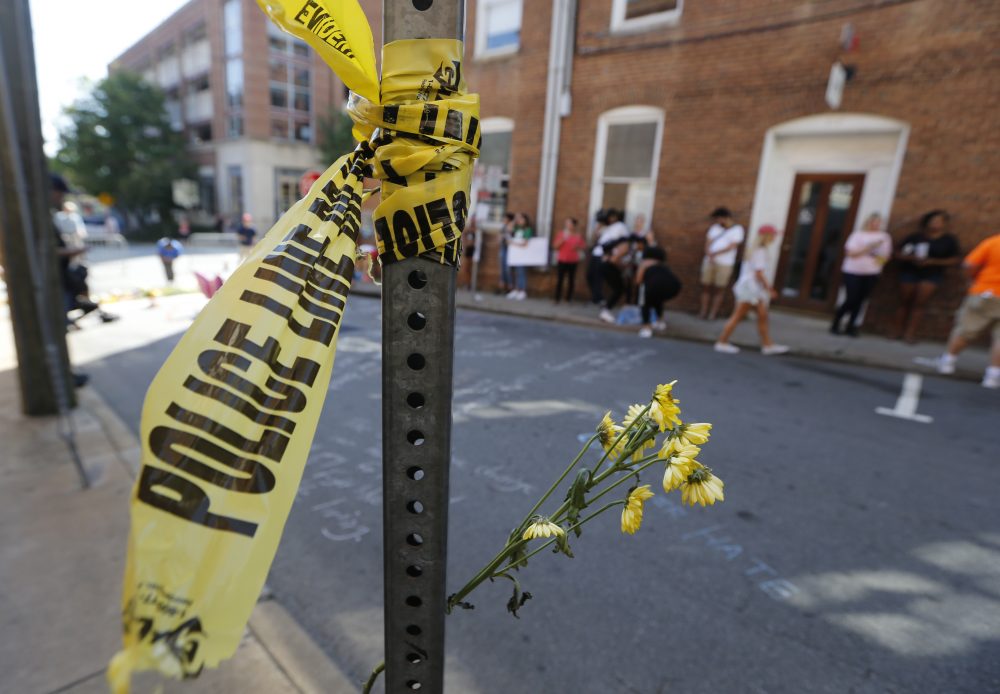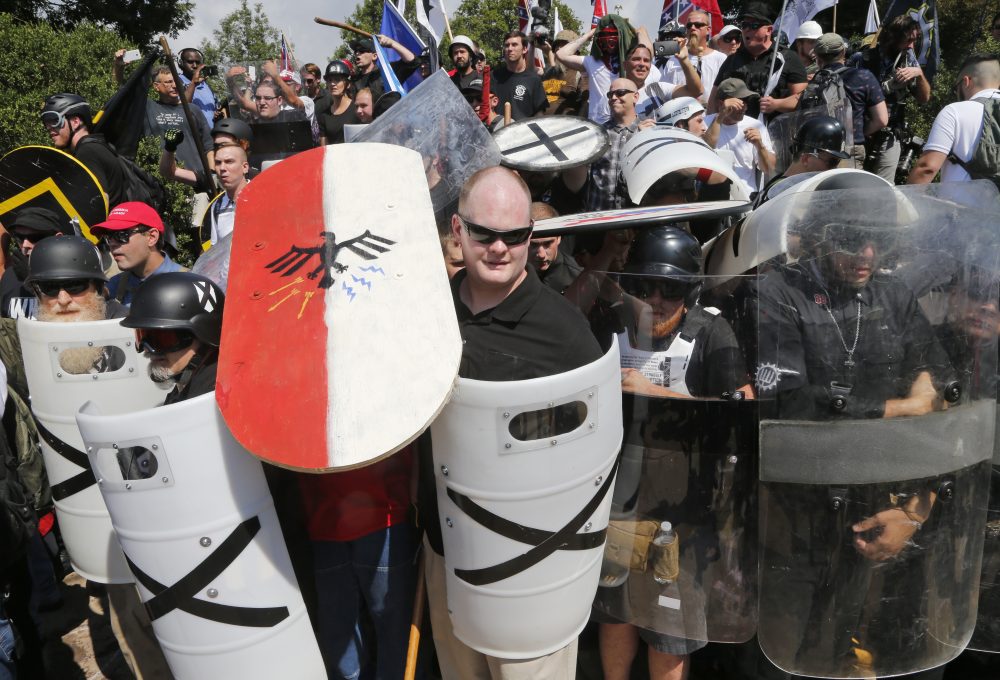Advertisement
Commentary
Hate The Sin. Hate The Sinner?

Simon Wiesenthal adhered to a personal moral code that was as dogged as his pursuit of Nazis. While imprisoned in a concentration camp during World War II, the man who would run so many war criminals to ground refused an SS officer’s request for forgiveness, even though the latter was dying.
I heard that story as a religion columnist when I interviewed Solomon Schimmel, professor (now emeritus) of Jewish education and psychology at Hebrew College. Schimmel had just published "Wounds Not Healed By Time," his book about when and whether it’s necessary to forgive wrongdoing. The violence incited by a racist rally Saturday in Charlottesville, Virginia, reminded me of Schimmel’s insights.
With a woman dead after a man rammed his car into people who were protesting the white supremacists, I wondered, after centuries of such senseless hate, whether we’re obliged, in the words of the cliche, to hate the sin but love the sinner. If “love the sinner” means forgive the sinner, I find myself quite comfortably hating the sin and the sinners in this case.
I say this as a Catholic whose pastor, for all I know, might have me praying Hail Marys for a decade for confessing this unforgiving attitude. My fellow Christians, Schimmel noted, sometimes preach unconditional forgiveness and love as moral imperatives. Doesn’t the Bible record that Jesus asked God’s absolution of his executioners as he hung dying on the cross?
But Judaism and Islam, while also prizing mercy, deem justice for the injured as morally important as forgiveness for the injurer, Schimmel said. They teach that wrongdoers must first repent and try to make amends before they’re entitled to forgiveness. Jesus, a devout Jew, alludes to this outlook as well. In Matthew’s gospel, he commands that, before leaving a gift at the altar, a person who has wronged someone should “go first and be reconciled with your brother.”

To be clear, I am in awe of those who model true, unconditional forgiveness. The church worshipers who forgave Dylann Roof after he gunned down nine of their fellow Bible students in 2015 displayed a capaciousness of heart of which I'm incapable. Some readers surely will argue that forgiveness is solely the prerogative of those directly injured, not to be decided by the rest of us who spectate from afar.
But this is obviously false. Roof sits on death row for his crimes; while the churchgoers may have forgiven him, the state, acting for all of us, demands punishment. Those opposed to the death penalty, as am I, find it morally untenable, but even we would cage Roof for life, depriving him of freedom, the most basic human right after life itself. That’s partly to protect society from any future rampage. But it also would fulfill imprisonment's morally justified purpose of punishment.
Where does this leave us vis-a-vis the Charlottesville tragedy?
Advertisement
Amends, such as confinement, can be imposed, but repentance must come from the sinner. The white supremacists who rallied have a constitutional right to express themselves, but they cling fanatically to a centuries-old prejudice. (One obtusely groused to a reporter, “I’m tired of seeing white people pushed around.”) Their moral pigheadedness is as odious as it is avoidable: Witness the example of another one-time bigot, a congregant of the Westboro Baptist Church (infamous for its “God Hates Fags” signs) who recanted her anti-gay hate. The racist ralliers and the car-driving killer are not entitled to forgiveness absent such repentance and amends.
If “love the sinner” means forgive the sinner, I find myself quite comfortably hating the sin and the sinners in this case.
Anger, even aimed at haters, can be self-immolating. Since my inner Jew/Muslim finds it psychologically impossible to forgive, at least for now, I suggest those of us who feel this way channel our anger by calling out bigotry, in whatever forums are available to us, public or private. We should refuse to accommodate the demands of racists like those in Charlottesville, who were protesting the removal of a statue of Robert E. Lee.
And we should remember that one way to vent our anger that isn't self-destructive is through the mocking dismissiveness that haters hate. NPR’s quiz show Wait, Wait, Don’t Tell Me offered a fine example last week.
The host noted that the upcoming solar eclipse will be strongest over many counties that voted for Donald Trump (and racism animated many Trump voters last year). How ironic, the host noted, since the last thing those voters wanted was to make America darker.
Given that our president only belatedly singled out white supremacy for condemnation while commenting on Charlottesville, I’d say the joke is about all the forgiveness any of his backers and those who rallied in that city deserve.
